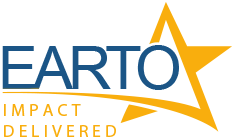22 / 07 / 2021
EARTO Input on the Implementation of European Partnerships
European Partnerships are key instruments to foster trust-based and long-term cross-border collaboration between all European RD&I actors. As such, they will be essential to deliver on the twin green and digital transitions, with high impact for the European economy and society. With their nodal position in European industrial innovation ecosystems, Research and Technology Organisations (RTOs) have been active players in the different European Partnerships since their creation. With the Proposal for a Council Regulation for establishing the Joint Undertakings under Horizon Europe (Single Basic Act – SBA) currently being discussed by the Council and the Memorandum of Understanding for Co-Programmed Partnerships being signed, the implementation modalities for these Partnerships need to keep enabling the participation of all types of actors, including non-profit organisations like RTOs and universities. Accordingly, EARTO strongly recommends that the specificities of non-profit organisations are better taken into account when designing those new implementation modalities. It is essential to ensure that the measures taken to boost private co-investments and reporting do not create unintended barriers to entry for non-profit RD&I actors in European Partnerships. To that end, EARTO has the following recommendations:- In-kind contributions to operational activities (IKOP) should not be limited to eligible costs for non-profit organisations in Institutionalised Partnerships
- Direct costs for non-profit organisations should remain in line with the Horizon Europe programme’s Regulation in Institutionalised Partnerships fully funded by the Union, and should not be reduced below 100% of direct eligible costs as an outcome of the IKOP requirement
- In-kind contributions to additional activities (IKAA) should be clearly defined with a wide scope and light reporting requirements, and streamlined for all European Partnerships
- European Partnerships should better address the whole TRLs scale with a forward-looking dimension (a key enabler would be to ensure the participation of the non-profit research performing sector into the Partnerships’ Boards) and in any case the RD&I topics covered by Partnerships should also remain covered in other parts of Horizon Europe to avoid gaps

